Last month, the What Works Centre for Wellbeing released a report suggesting that when we talk about wellbeing, we should consider not only the average wellbeing in a population but also how that wellbeing is distributed. We strongly support this suggestion but note that choosing a metric for wellbeing inequality shares the same shortcomings as reporting only average well-being: it makes implicit value judgments about what information is important. Seeing as early measures often become widely adopted (e.g. GDP), we believe we have a chance to build a new norm of presenting full wellbeing distributions alongside familiar measures, allowing for individuals and their representatives in government to self-determine what qualities of the wellbeing distribution matter to them.
SPSP 2023 in Atlanta!
The Population Well-being Lab attended SPSP 2023 in Atlanta, Georgia last month! This marked the lab’s first-in person SPSP and many of the lab members’ first in-person conference. We are so proud of our presenters!
First, Felix Cheung was one of the co-organizers of the Happiness and Well-being Preconference. We had Levi, Elizabeth, Sofia, and Anthony present their work in data blitz talks!

Caption: Felix Cheung and Milla Titova, the co-organizers of the Happiness and Well-being Preconference

Caption: Levi presented his work on the link between democratic backsliding and well-being

Caption: Elizabeth presented her work on the impact of the Euromaidan on Ukrainian well-being

Caption: Sofia presented her work on whether certain well-being profiles predict better well-being

Caption: Anthony presented his work on the link between allocation of government expenditure and well-being
Sofia also plugged a call for interventions in collaboration with the Intelligent Adaptive Interventions Lab to crowdsource interventions to improve short-term well-being. Five submissions will be accepted and implemented, and the submission form closes on March 23rd. Submissions from early-career and more seasoned researchers are welcome. Check out the website for more information: https://www.easiwellbeing.com/

Elisabetta, Karina, and Anthony presented their posters:
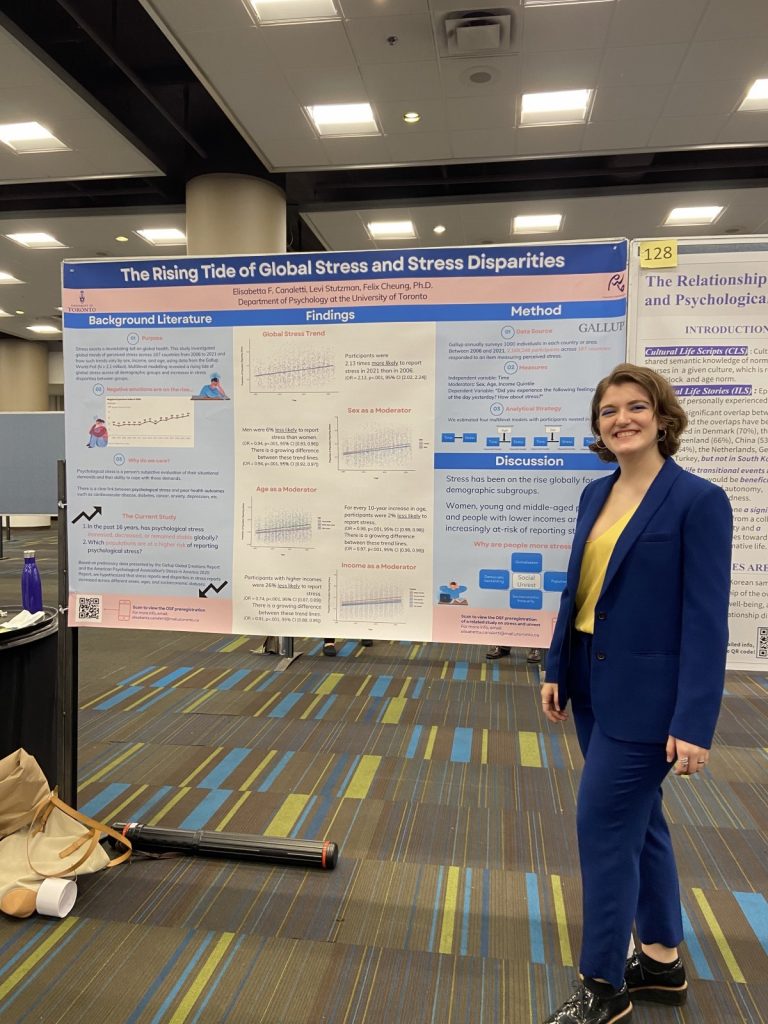
Caption: Elisabetta presented her work on global stress trends
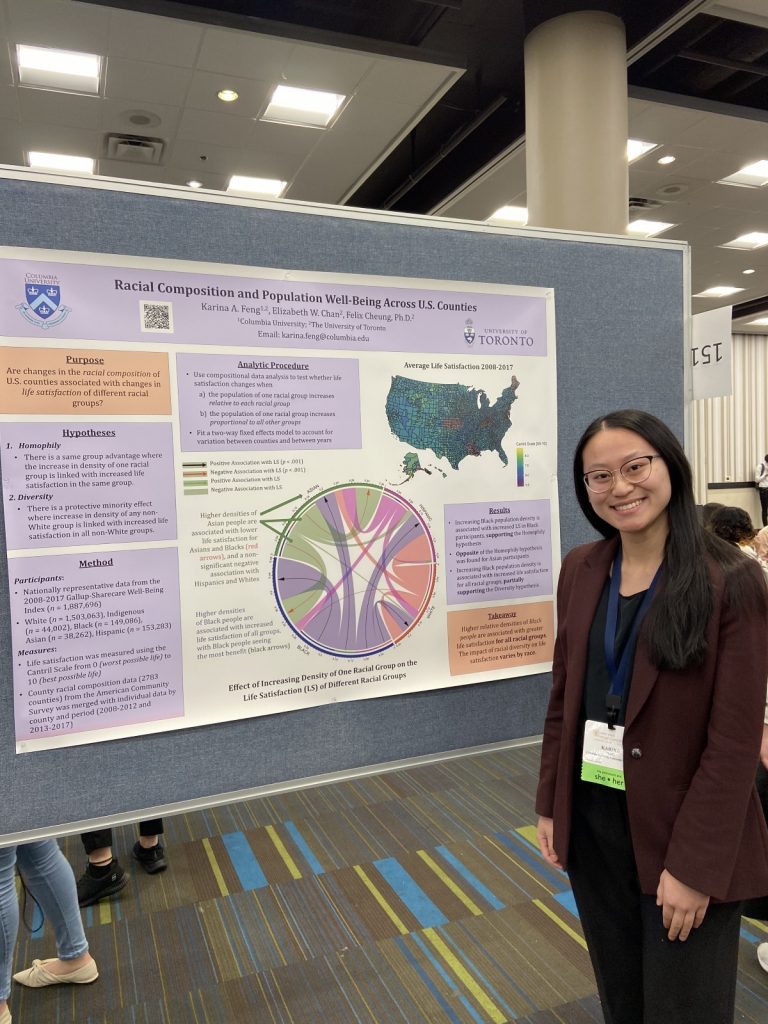
Caption: Karina presented her work on the link between racial composition in the U.S. and well-being

Caption: Anthony presented his work on the link between allocation of government expenditure and well-being
Finally, Elizabeth chaired a symposium, “Promoting well-being through awe, mindfulness, intergenerational connections, and time use” and presented her work on how reallocating leisure time affects well-being

With many of us being foodies, we also happily explored the food scene in Atlanta and enjoyed Southern barbecue, ice cream, and Persian food!

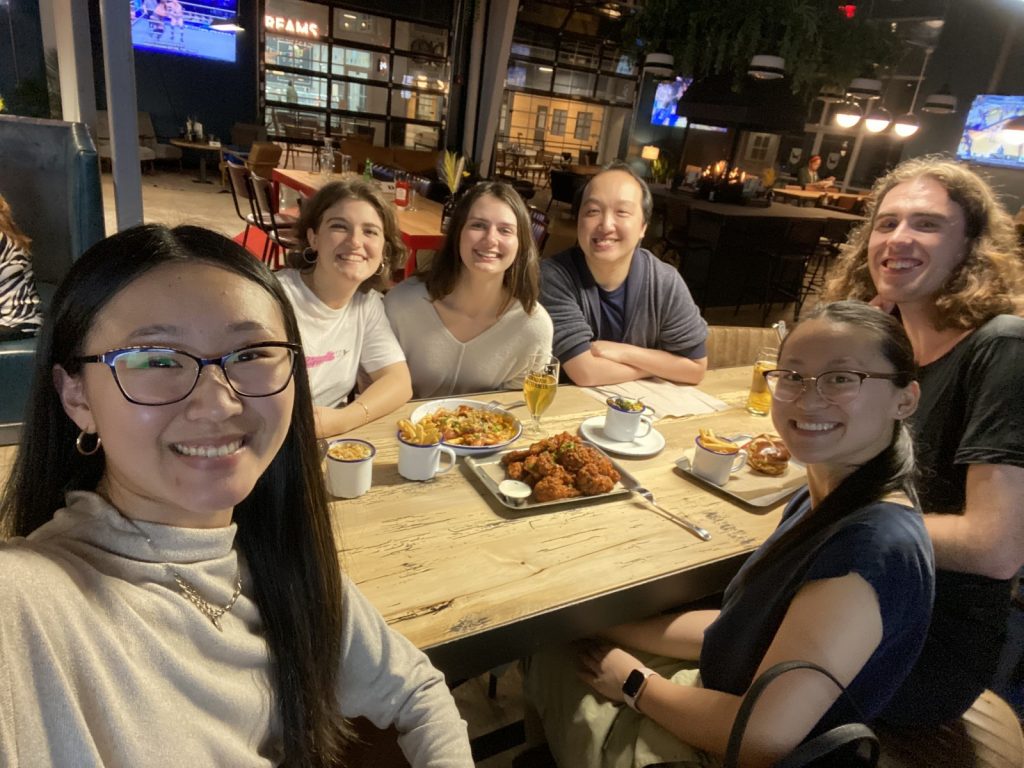
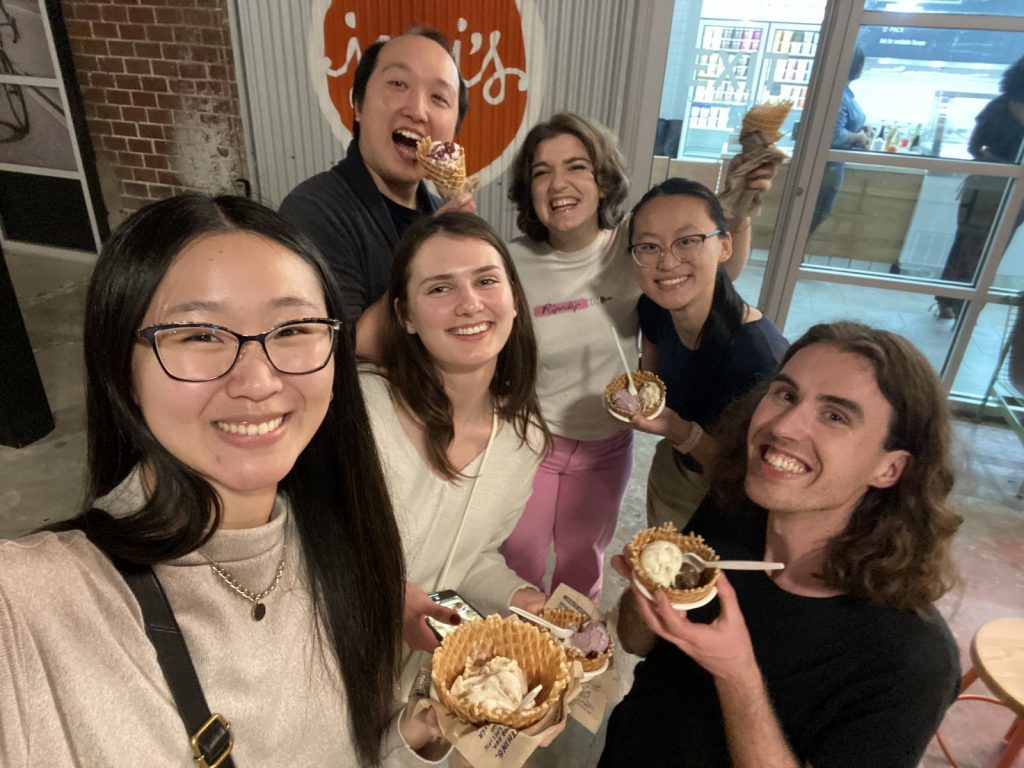
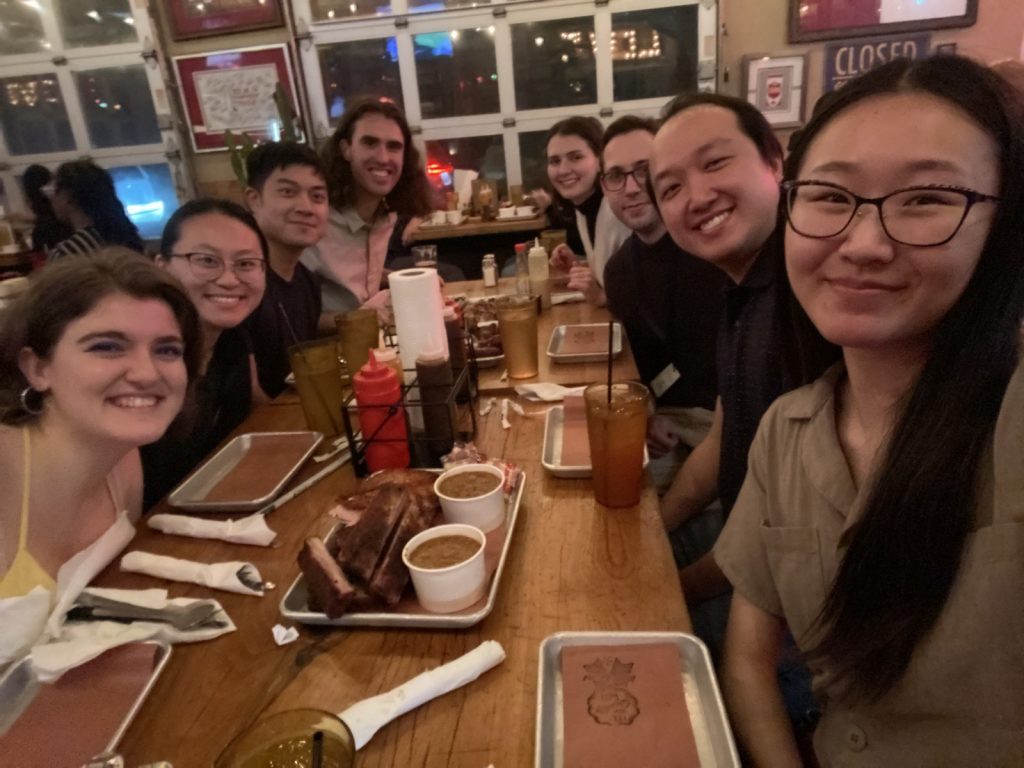
EASIxWellbeing Study – Call for Ideas
The Intelligent Adaptive Interventions Lab and the Population Well-being Lab at the University of Toronto are running a collaborative adaptive experiment testing social interventions to improve short-term well-being.
We are interested in crowdsourcing creative and out-of-the-box ideas for short social interventions. Instructions for the intervention will be delivered via text message over the course of a week and will encourage the study participant to do your activity.
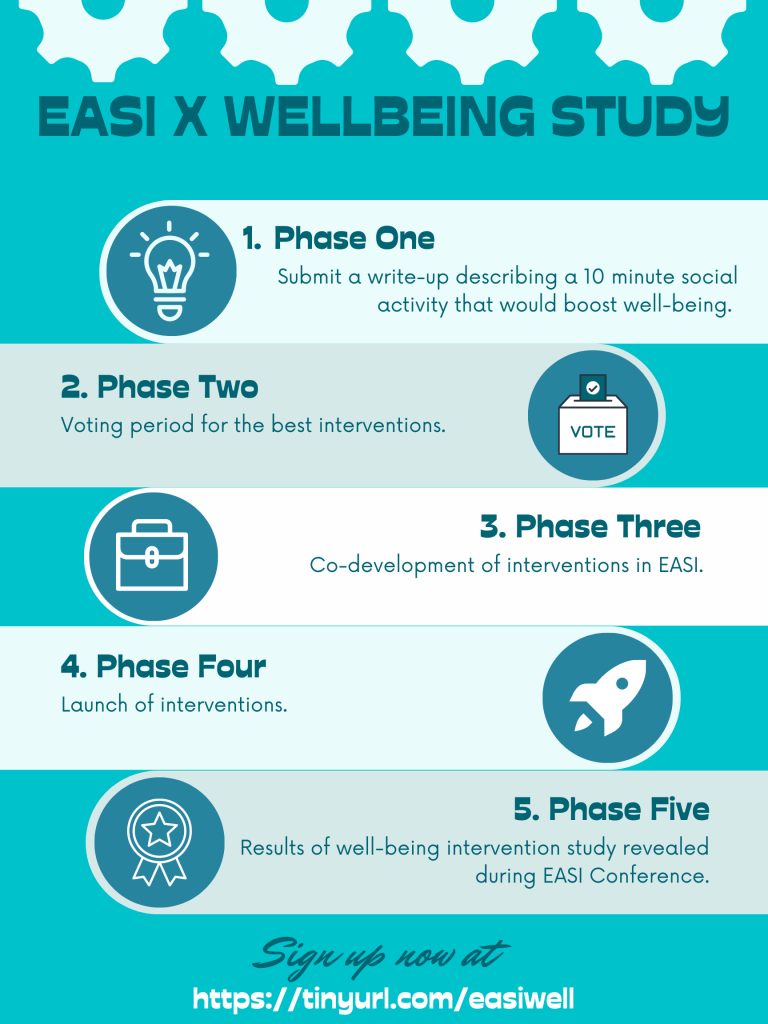
To find out more about how the adaptive experiment will run, we invite you to explore our website where you will also find a link to the intervention submission form with further instructions that will close on March 23rd. We invite researchers at any stage of their career to submit their ideas.
Knowledge Café with Dr. Felix Cheung on Jan. 18th, 2023
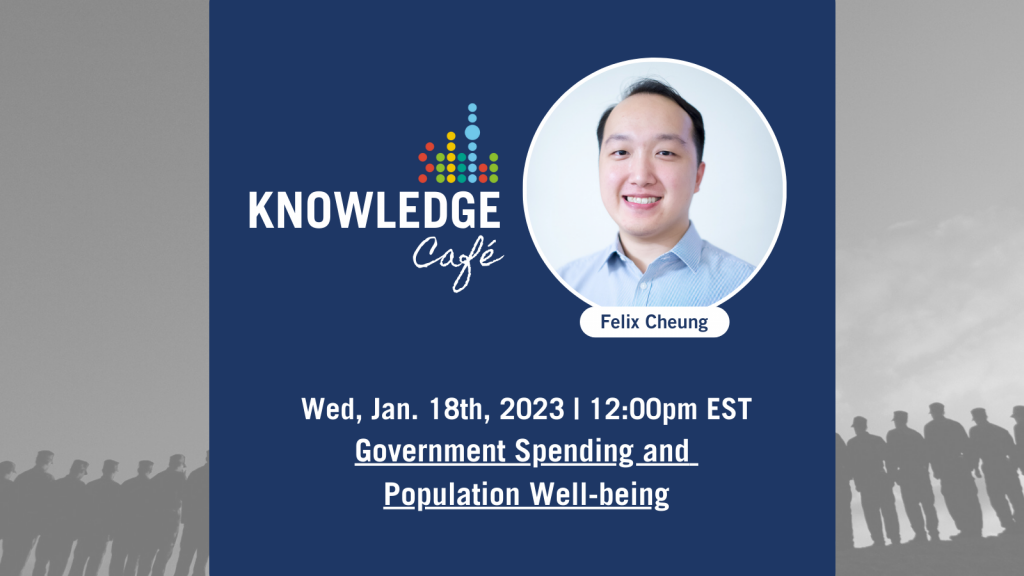
On Jan 18th at 12pm ET, Dr. Cheung will examine how government spending across different domains shapes subjective well-being with @UofTCities. RSVP at: https://eventbrite.ca/e/knowledge-cafe-government-spending-and-population-well-being-tickets-480126961667